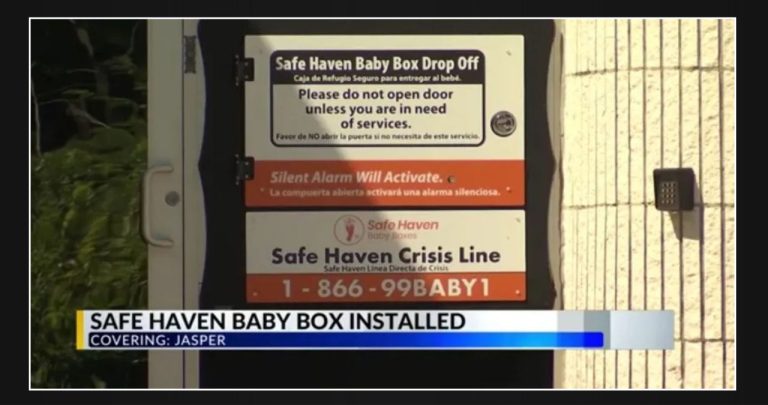On Thursday evening in Alabama, a man who was found guilty of shooting a delivery driver during a robbery attempt in 1998 was executed by chemical injection.
Authorities have announced that Keith Edmund Gavin, aged 64, passed away at 6:32 p.m. in the William C. Holman Correctional Facility located in southwest Alabama. Gavin was convicted of capital murder for the shooting death of William Clayton Jr., aged 68, who was a courier service driver. The incident occurred on March 6, 1998, in Cherokee County. According to trial testimony summarized by the court, Clayton had just finished work and was withdrawing money from an ATM to take his wife out for dinner.
According to Alabama Governor Kay Ivey, Mr. Gavin had appealed for years to avoid justice after being sentenced to death. Despite his numerous attempts, he failed every time. Finally, justice was delivered for Mr. Clayton’s loved ones. Governor Ivey expressed her condolences and offered her prayers for Mr. Clayton’s family and friends who continue to grieve his loss years after his passing.
Gavin’s execution started soon after the U.S. Supreme Court denied his request for a stay of execution, which he had personally filed in a handwritten document.
As the clock approached 6:10 pm, Gavin’s final statement echoed in the room, “My family is everything to me.” A few inaudible words followed, but his message was clear. With his spiritual adviser by his side, Gavin, a follower of Islam, closed his eyes and moved his lips in prayer. He lifted a finger on both hands, a gesture that symbolizes the belief in one god, Allah.
Gavin seemed to lose consciousness as the sedative flowed through the IV line and his head fell back on the gurney. At 6:20, a corrections officer conducted a consciousness check, which involves saying the person’s name, brushing their eyelids, and pinching their arms before administering the final two drugs. Shortly after the check, Gavin’s breathing began to fade.
According to court records, Gavin was serving a 34-year sentence for murder and was on parole in Illinois at the time of the killing, having served 17 years.
According to a 1998 obituary published by The Birmingham News, Clayton was a Korean War veteran who had retired from his job at a railroad company. Despite being a father of seven, he continued to work hard to provide for his family, as mentioned by his son.
After witnessing the execution, Matthew Clayton described his father as a hardworking man who embodied the spirit of America. He often worked two jobs to provide for his family.
According to the younger Clayton, his father was a good man who is deeply missed by his children, wife, and extended family. He laments the fact that his father’s final years were marred by such a brutal end, stating that he did not deserve to die in such a manner.
Clayton’s younger counterpart was skeptical about Gavin’s presence in Alabama, considering his previous murder conviction in Illinois.
Last week, Alabama made the decision to waive the post-execution autopsy in Gavin’s case, a standard procedure for executed inmates in the state. Gavin, who strongly objected to the procedure on religious grounds, filed a lawsuit to prevent the autopsy from taking place. The state ultimately settled the complaint.
Gavin was found guilty of capital murder and received a death sentence with a 10-2 jury vote, which was upheld by the judge. Currently, many states mandate that a unanimous decision is required from the jury to impose a death sentence.
In 2020, a federal judge concluded that Gavin did not have effective counsel during his sentencing hearing. The judge stated that Gavin’s original lawyers failed to present enough evidence that could have mitigated his sentence, including details of his violent and abusive upbringing in Chicago.
According to U.S. District Judge Karon O. Bowdre, Gavin’s childhood was spent in a housing project in Chicago that was plagued with gang violence, overcrowding, and drug activity. The houses were in poor condition and the atmosphere was rife with crime and riots.
The decision to allow the death sentence was overturned by a federal appeals court, which means that the sentence will not be carried out.
On Thursday, Alabama Attorney General Steve Marshall stated without a doubt that Gavin was guilty of committing this heinous offense.
According to the Death Penalty Information Center, Gavin’s recent execution marked the 10th instance of capital punishment in the United States so far this year, with three of those executions taking place in the state of Alabama. Other states such as Texas, Georgia, Oklahoma, and Missouri have also conducted executions in 2021. While the nonprofit organization, based in Washington, D.C., does not take a stance on the death penalty, it has expressed concerns over the methods used by states to carry out these executions.
On Tuesday, the state of Texas was prevented by the Supreme Court from executing a prisoner just 20 minutes before his scheduled lethal injection.
The Associated Press holds the copyright for the year 2024. Any unauthorized use or distribution of this material, including but not limited to publication, broadcasting, rewriting, or redistribution, is strictly prohibited. All rights are reserved.



